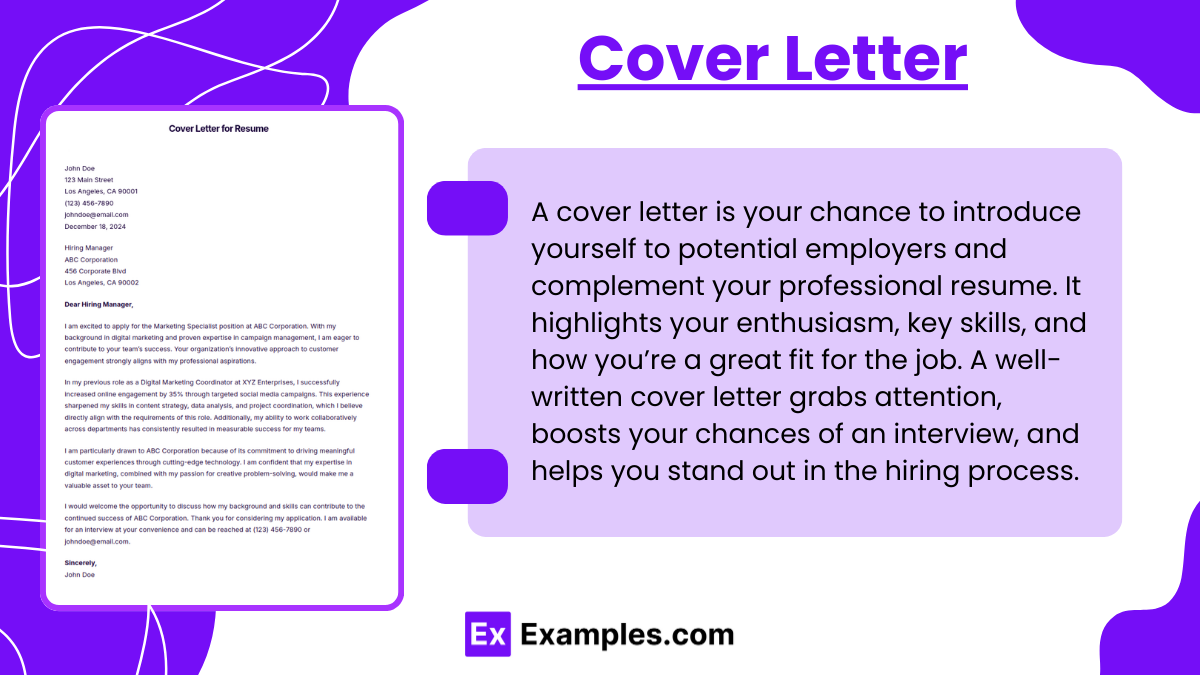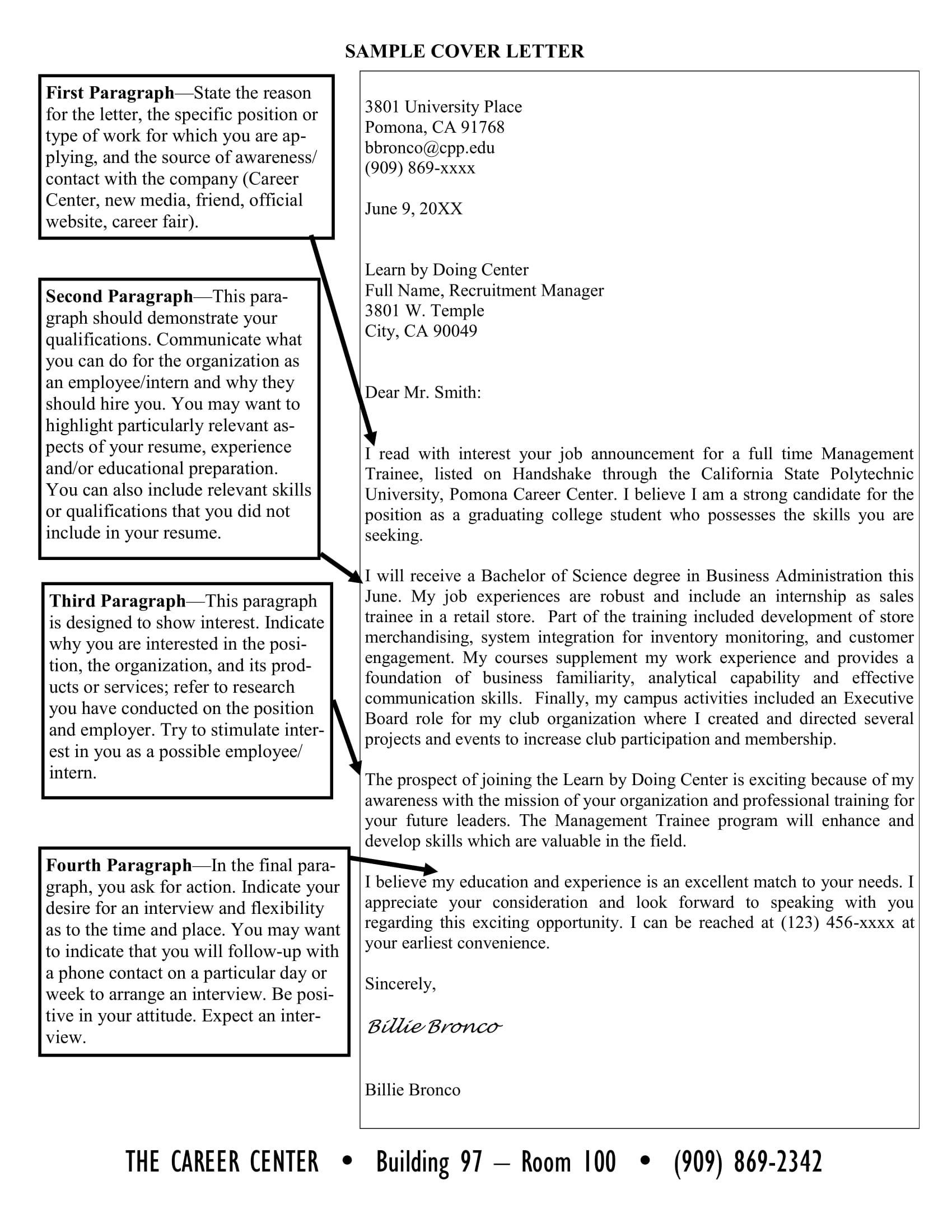45+ Cover Letter Examples to Download
A cover letter is your chance to introduce yourself to potential employers and complement your professional resume. It highlights your enthusiasm, key skills, and how you’re a great fit for the job. A well-written cover letter grabs attention, boosts your chances of an interview, and helps you stand out in the hiring process. Using professionally designed cover letter templates can help you create a polished, organized, and visually appealing document that leaves a lasting impression.
What Is a Cover Letter?
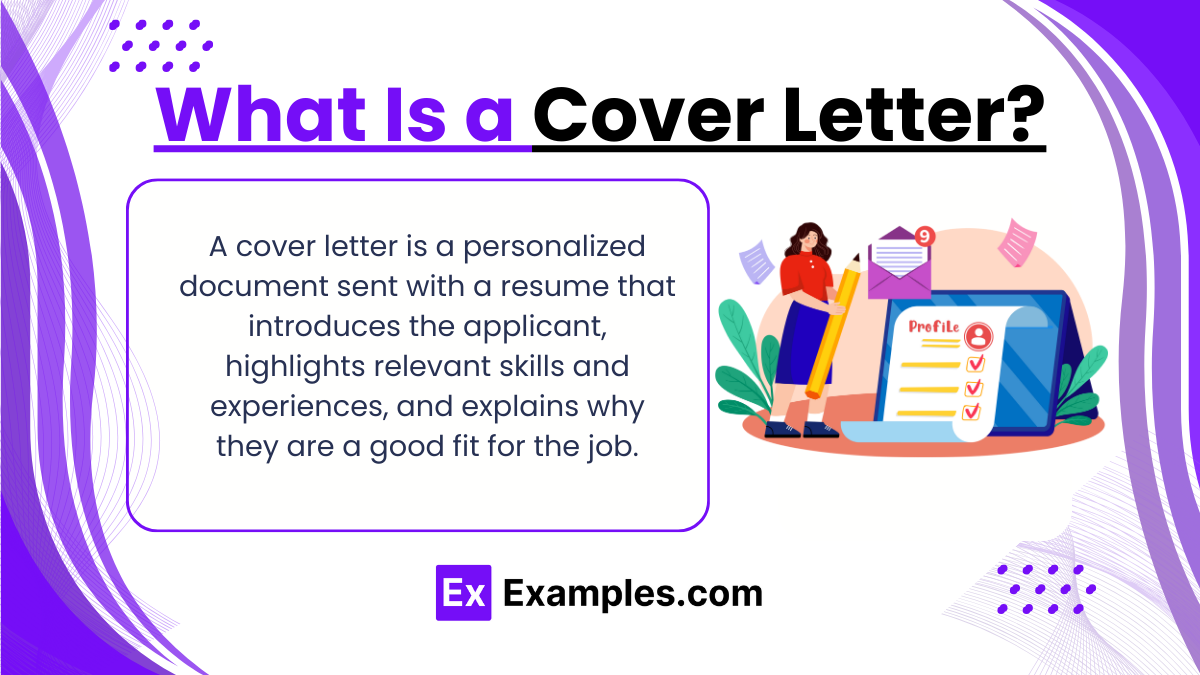
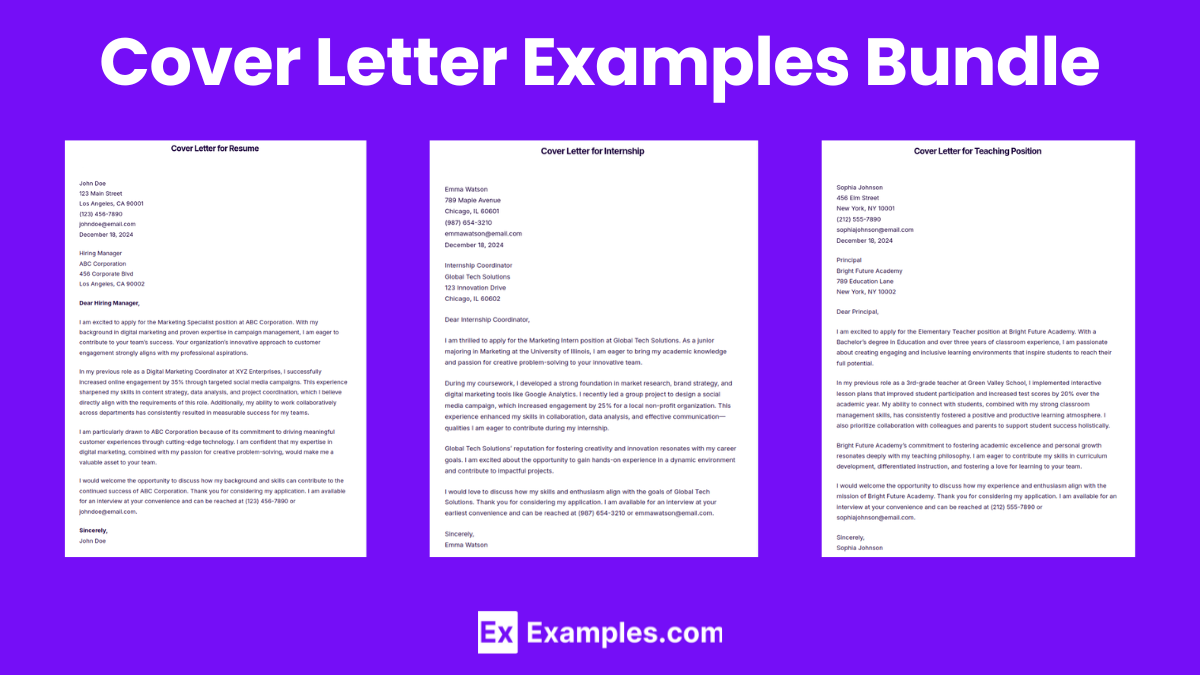
Cover Letter Format
1. Header
Your cover letter begins with your name, address, phone number, and email address at the top. Add the date below your contact information to ensure clarity and professionalism.
2. Employer’s Details
Below the header, include the hiring manager’s name, the company name, and the company’s address. This adds a personal touch and shows attention to detail.
3. Salutation
Start your letter with a professional greeting, such as “Dear [Hiring Manager’s Name].” If the name is unknown, use “Dear Hiring Team” to keep it formal yet inclusive.
4. Opening Paragraph
Introduce yourself and state the position you are applying for. Express your enthusiasm for the role and briefly explain why you are interested in the job or the company.
5. Body Paragraphs
Highlight your relevant skills, experiences, and achievements that align with the job requirements. Use specific examples to demonstrate how you can add value to the organization. This section allows you to expand on the information in your resume and connect it to the position.
6. Closing Paragraph
Reaffirm your interest in the role and mention your availability for an interview. Provide your contact details and thank the employer for considering your application.
7. Sign-Off
End with a formal closing, such as “Sincerely,” followed by your full name. Optionally, you can add a postscript (P.S.) to emphasize a key achievement or unique point about yourself.
Cover Letter for Resume
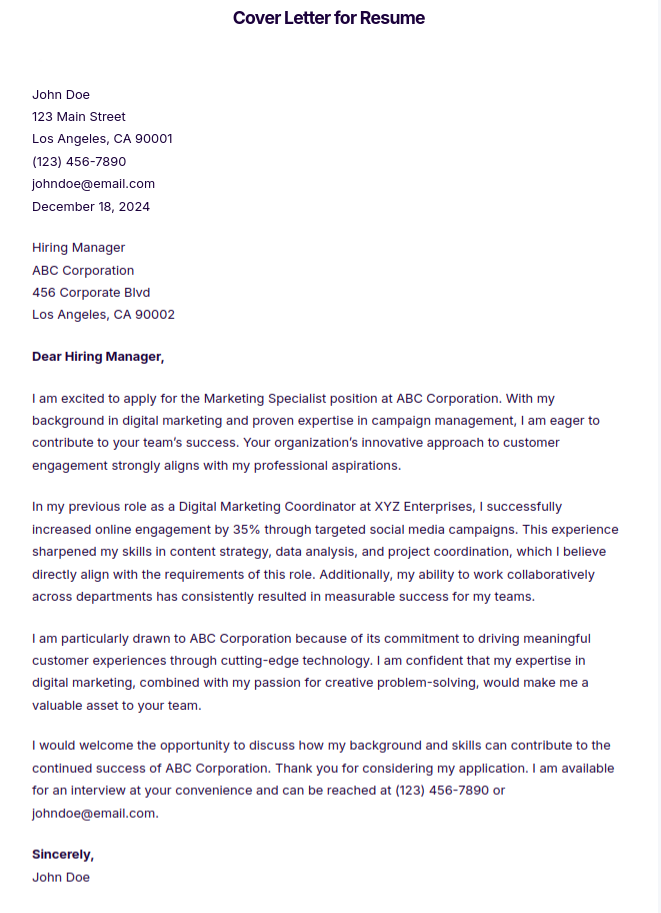
Cover Letter for Internship
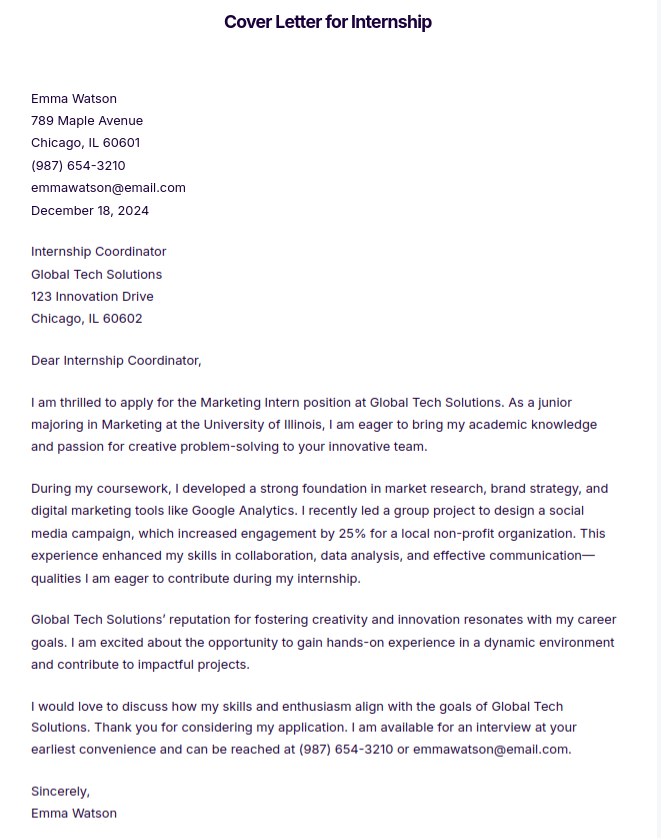
Cover Letter for Teaching Position

More Examples on Cover Letter
Cover Letter for Customer Service
Cover Letter for Medical Assistant
Credit Information Cover Letter Example
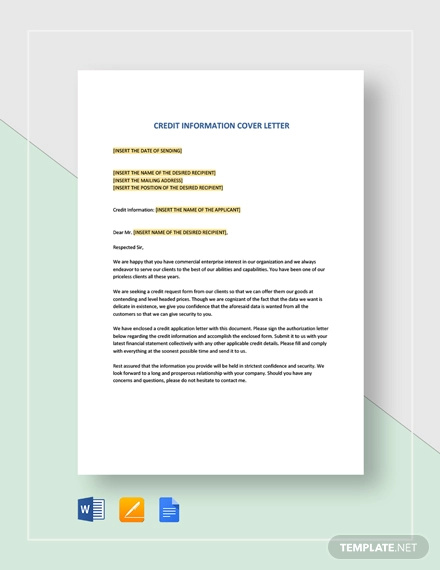
Project Accountant Cover Letter
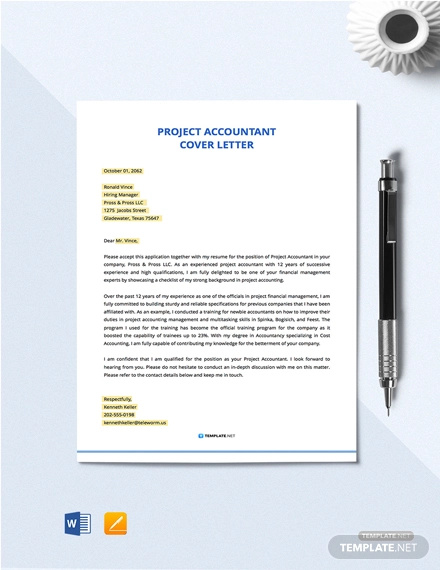
Sample Professional Fresher Resume Cover Letter Template
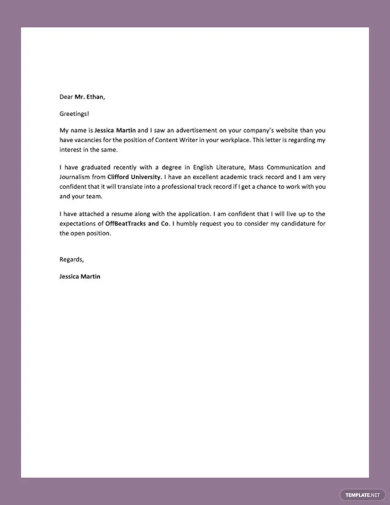
Simple Resume Cover Letter Template
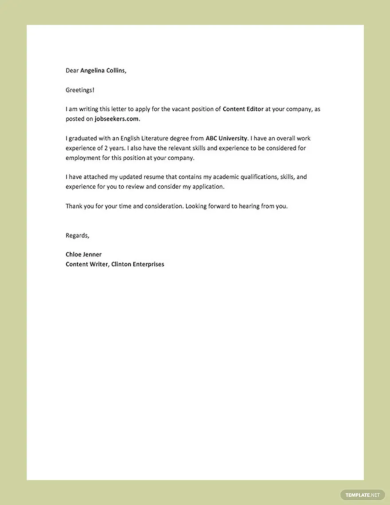
Cover Letter for a Cost Quotation Template
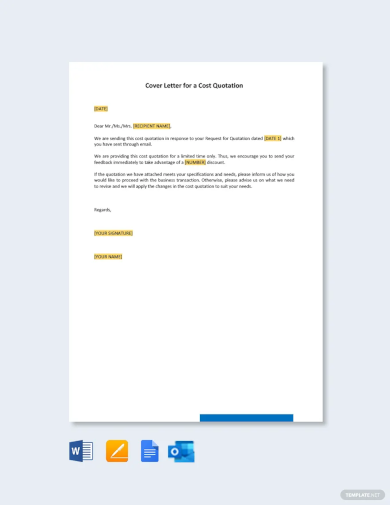
Email Cover Letter for Job Application Template
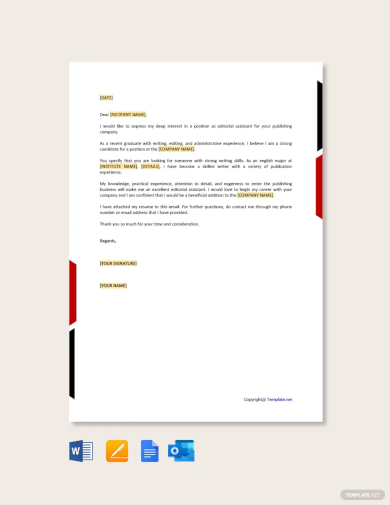
Teacher Cover Letter Template
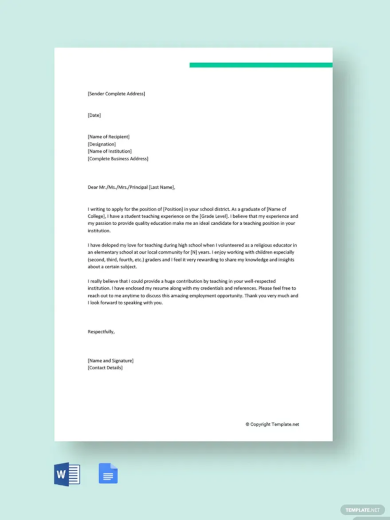
Project Finance Manager Cover Letter Template
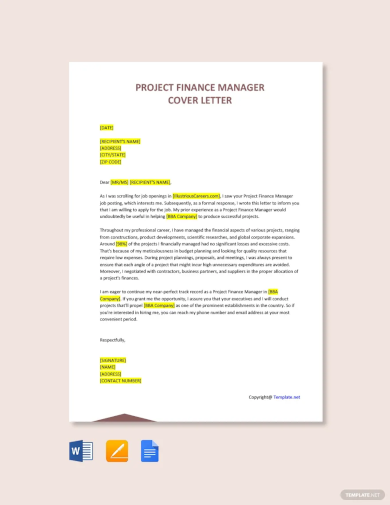
Graphic Designer Resume Cover Letter Template
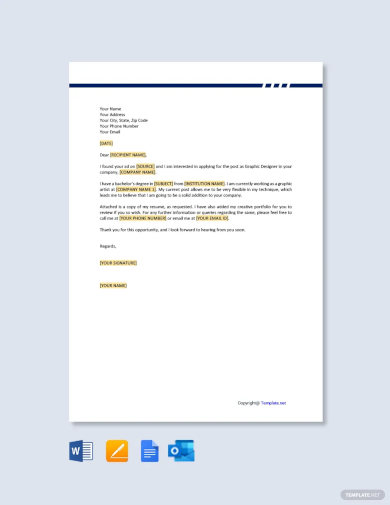
Professional HR Resume Cover Letter Template
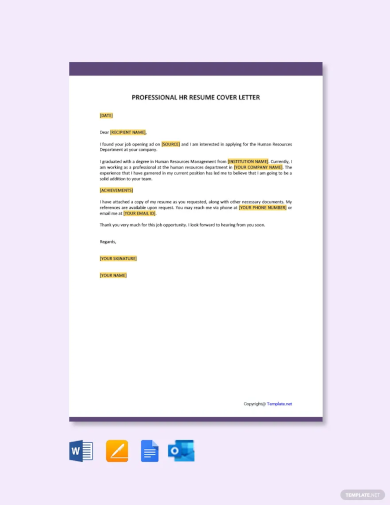
Dental Assistant Resume and Cover Letter Template
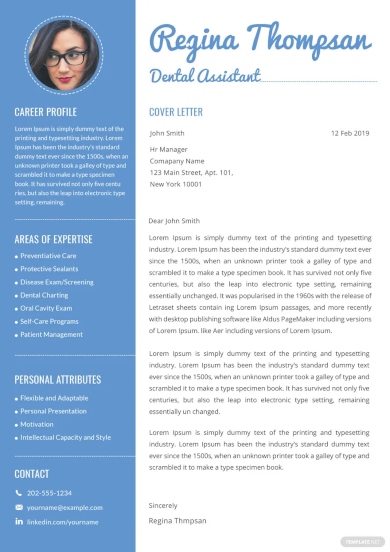
Medical Science Liaison Cover Letter Template
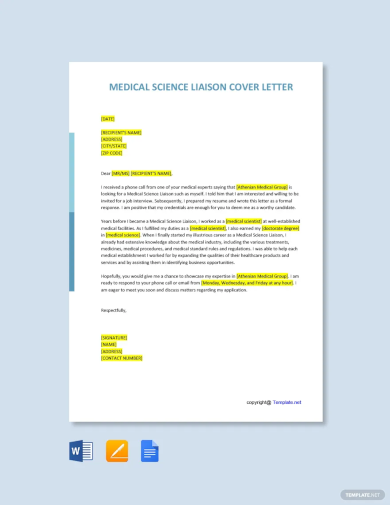
Head Basketball Coach Cover Letter Template
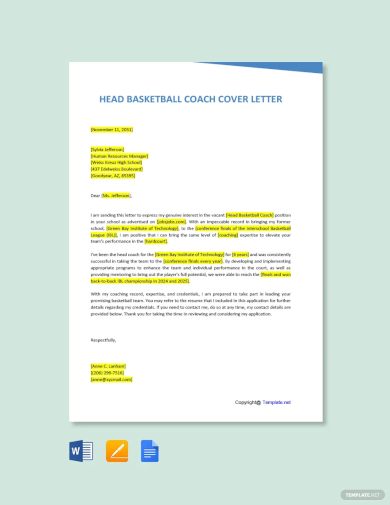
Free Cover Letter for Accounting Job Fresh Graduate Template
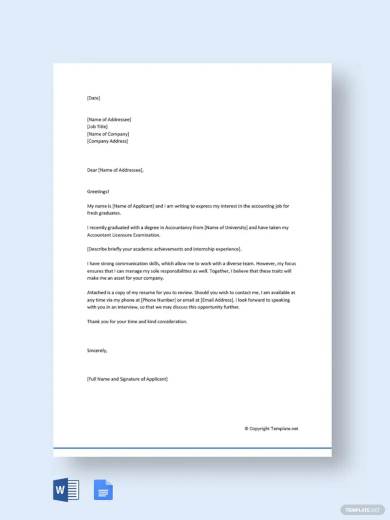
Business Funding Proposal Cover Letter Template
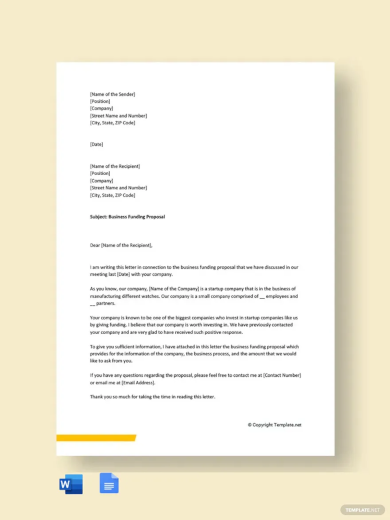
School Cafeteria Worker Cover Letter Template
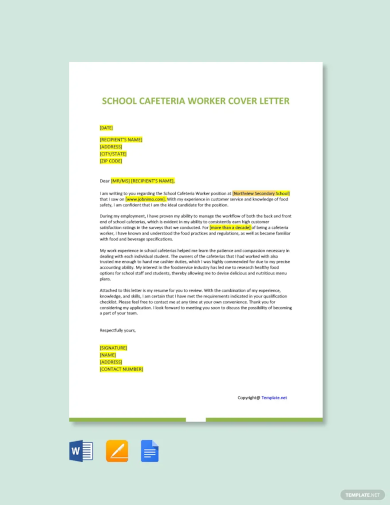
Highway Maintenance Worker Cover Letter Template
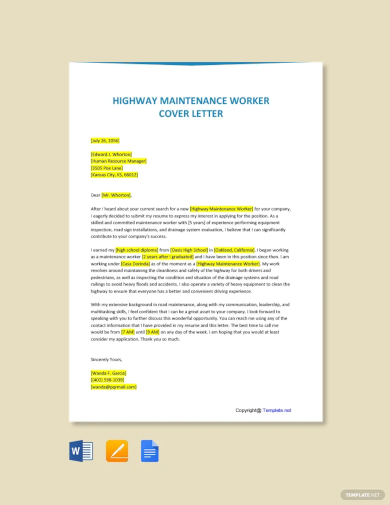
Script Writer Cover Letter Template
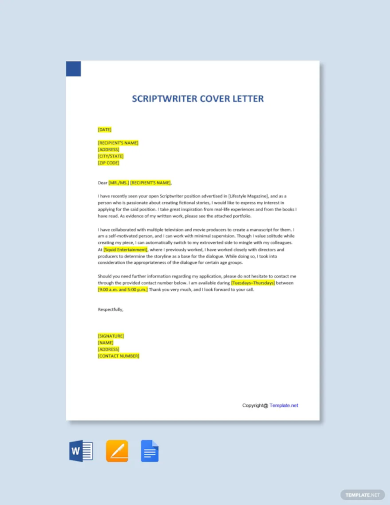
Elementary and Grade School Teacher Cover Letter Template
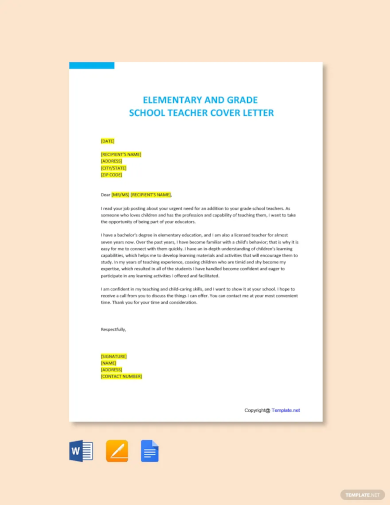
Unique Resume Cover Letter Template
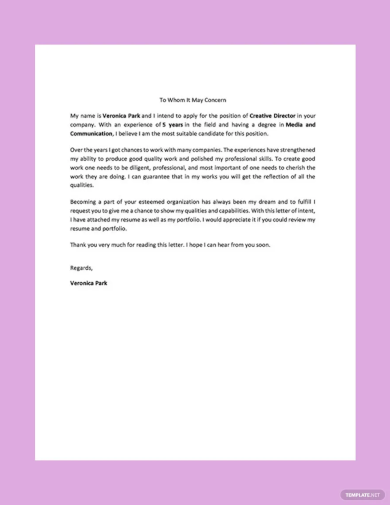
Sample Cover Letter for a Cost Quotation Template
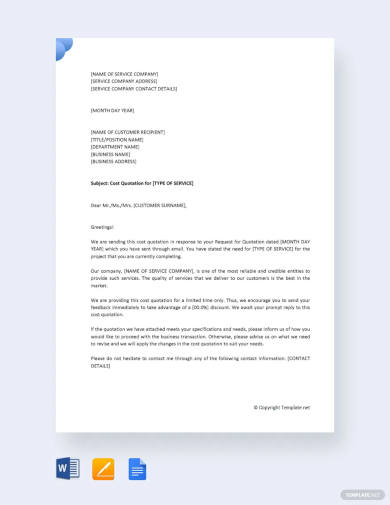
Accountant Cover Letter Template
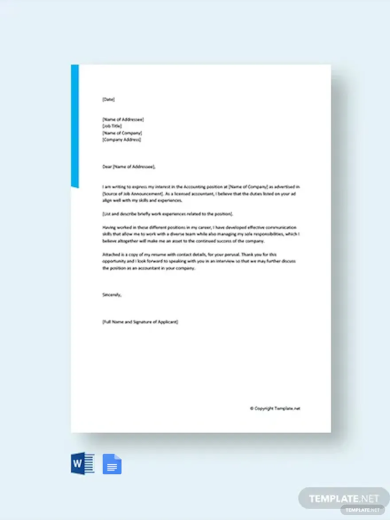
Business Proposal Cover Letter Template
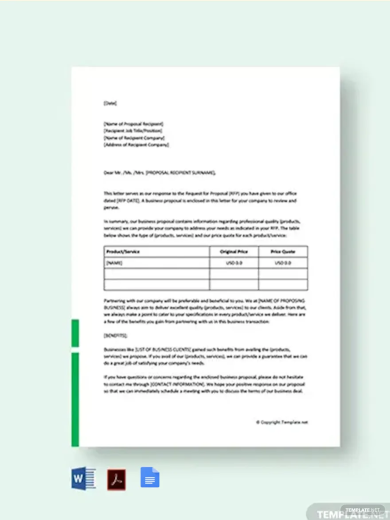
Administrative Assistant Cover Letter Template
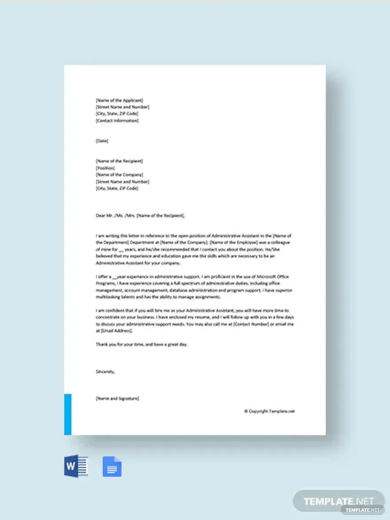
Cover Letter for Job Application for Freshers Template
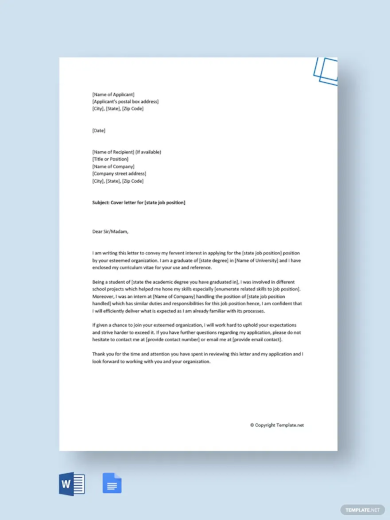
Elementary Teacher Cover Letter Template
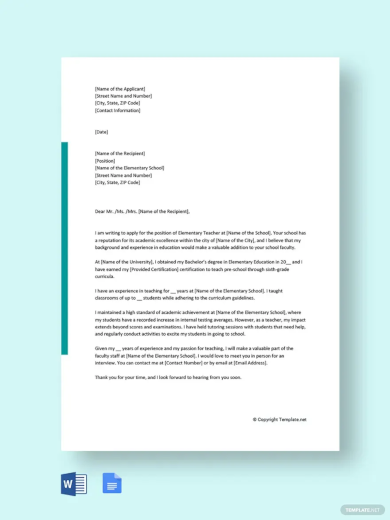
Generic Cover Letter Example
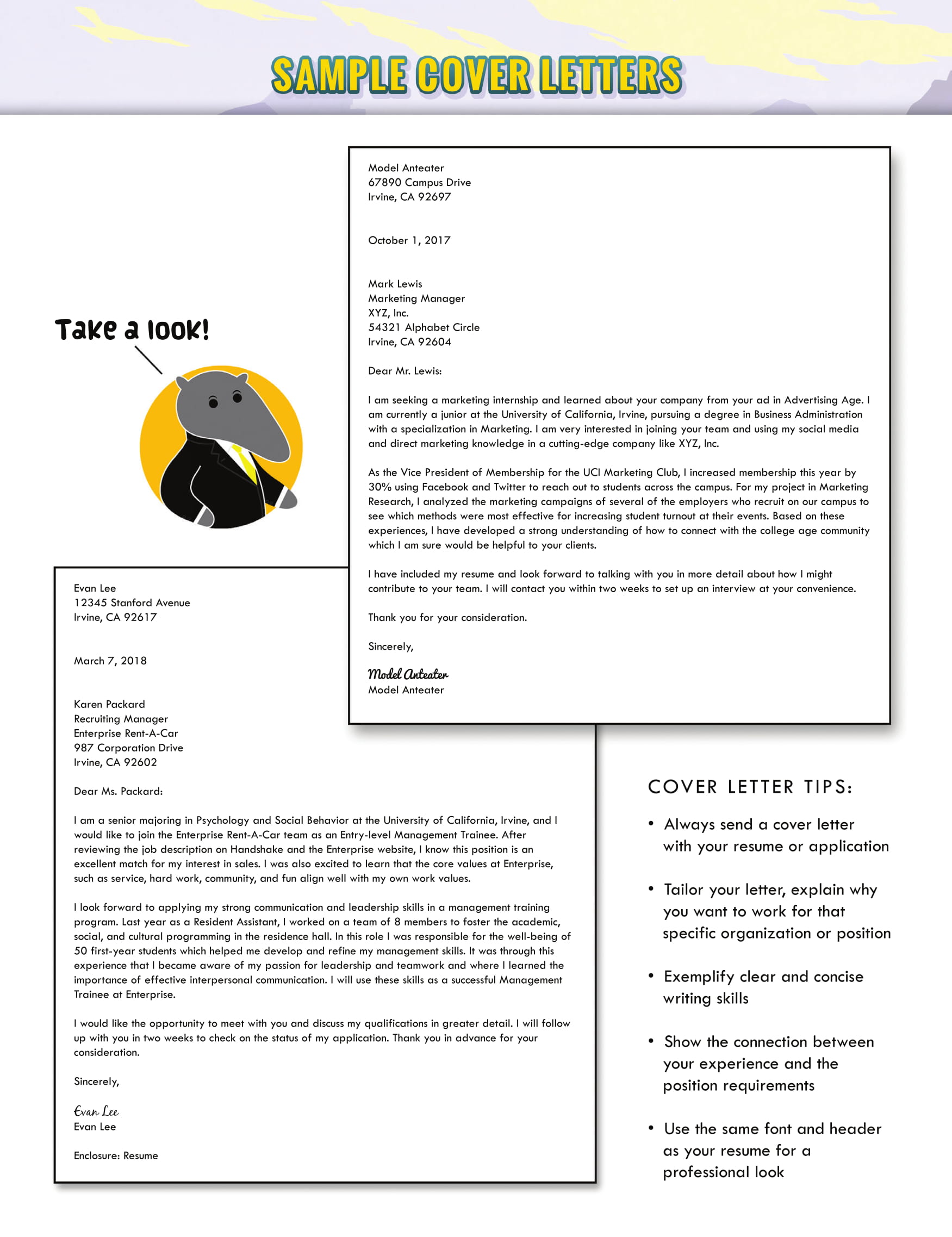
Covering Letter/Letter of Application Example
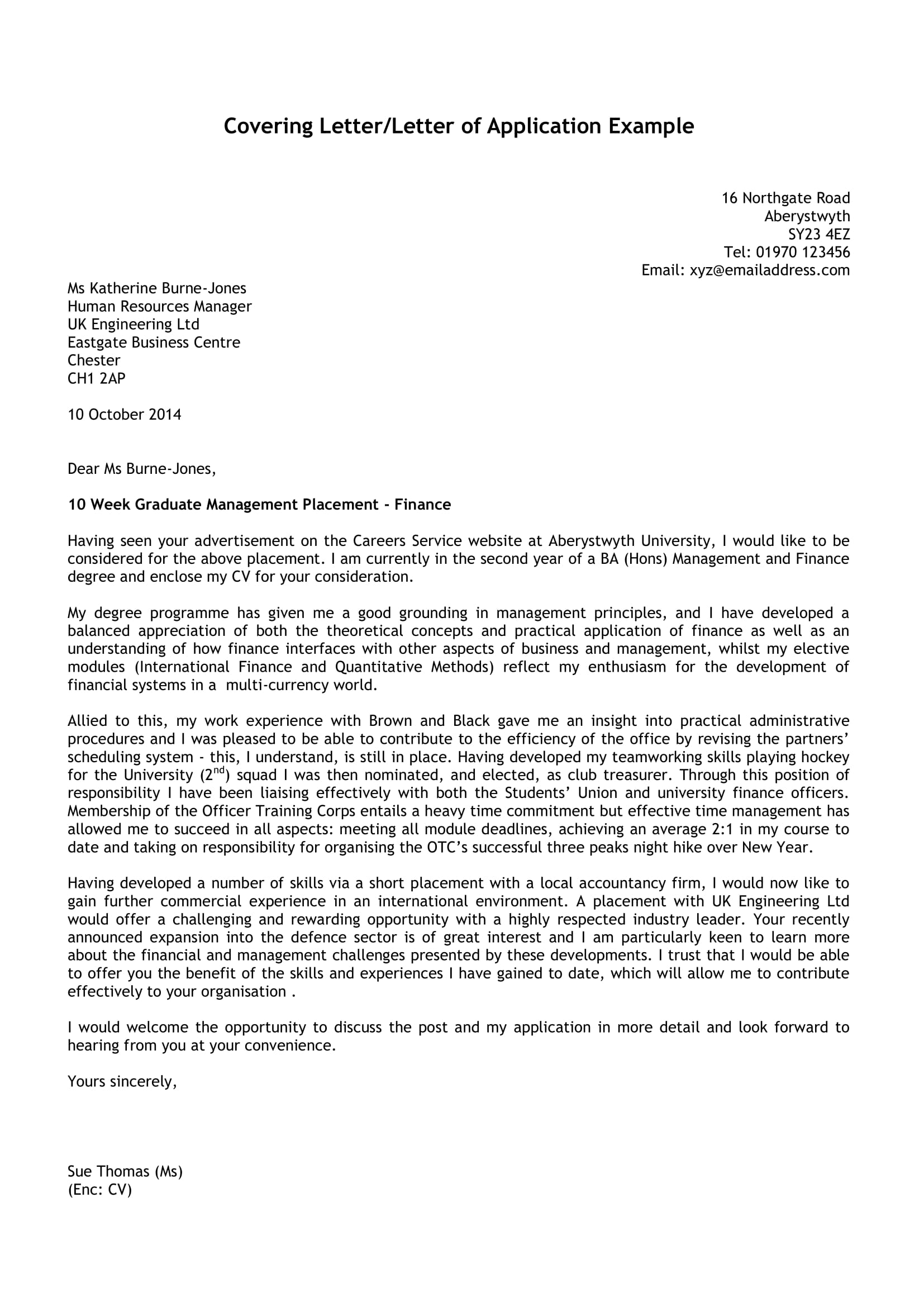
Basic Example of a Cover Letter
Simple Cover Letter Example
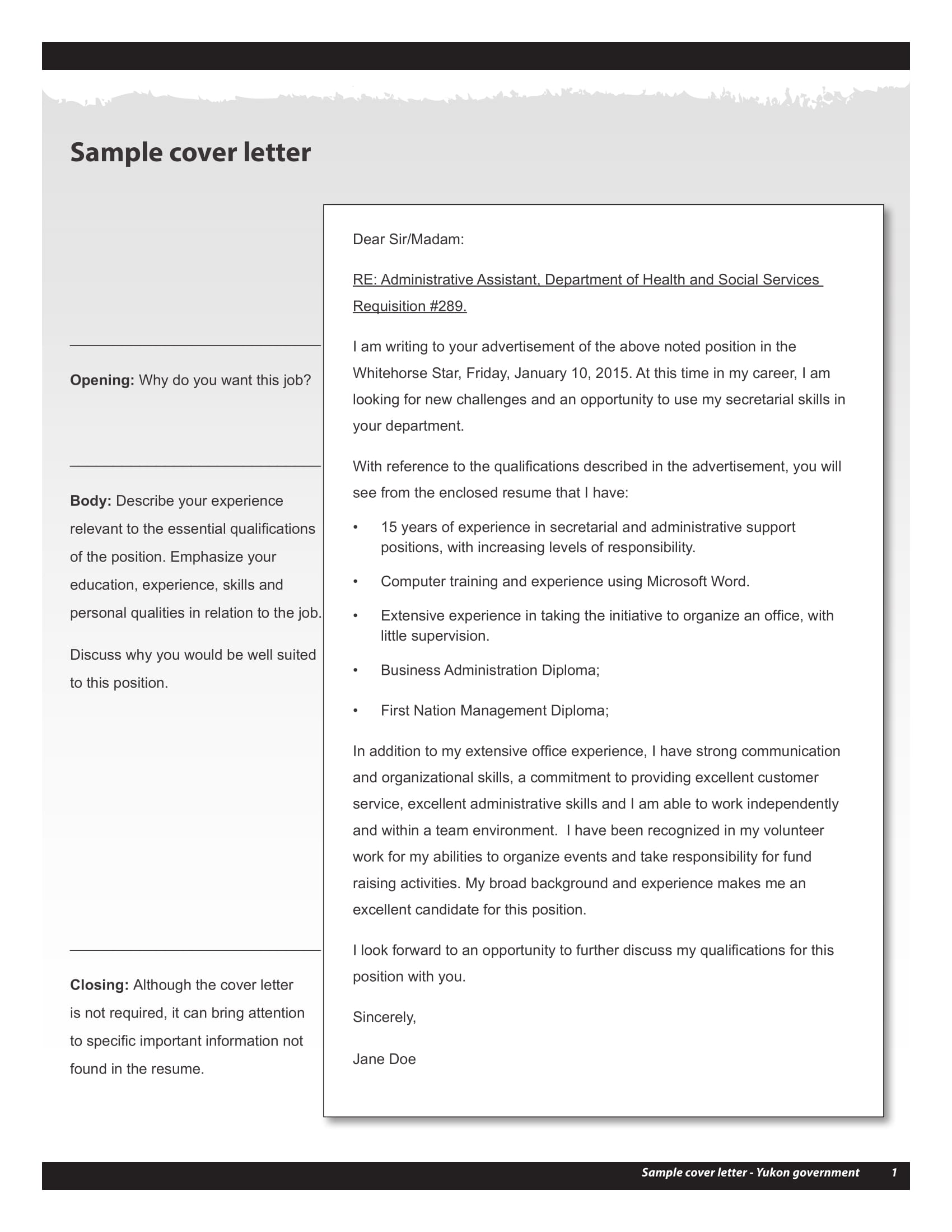
Cover Letter Example
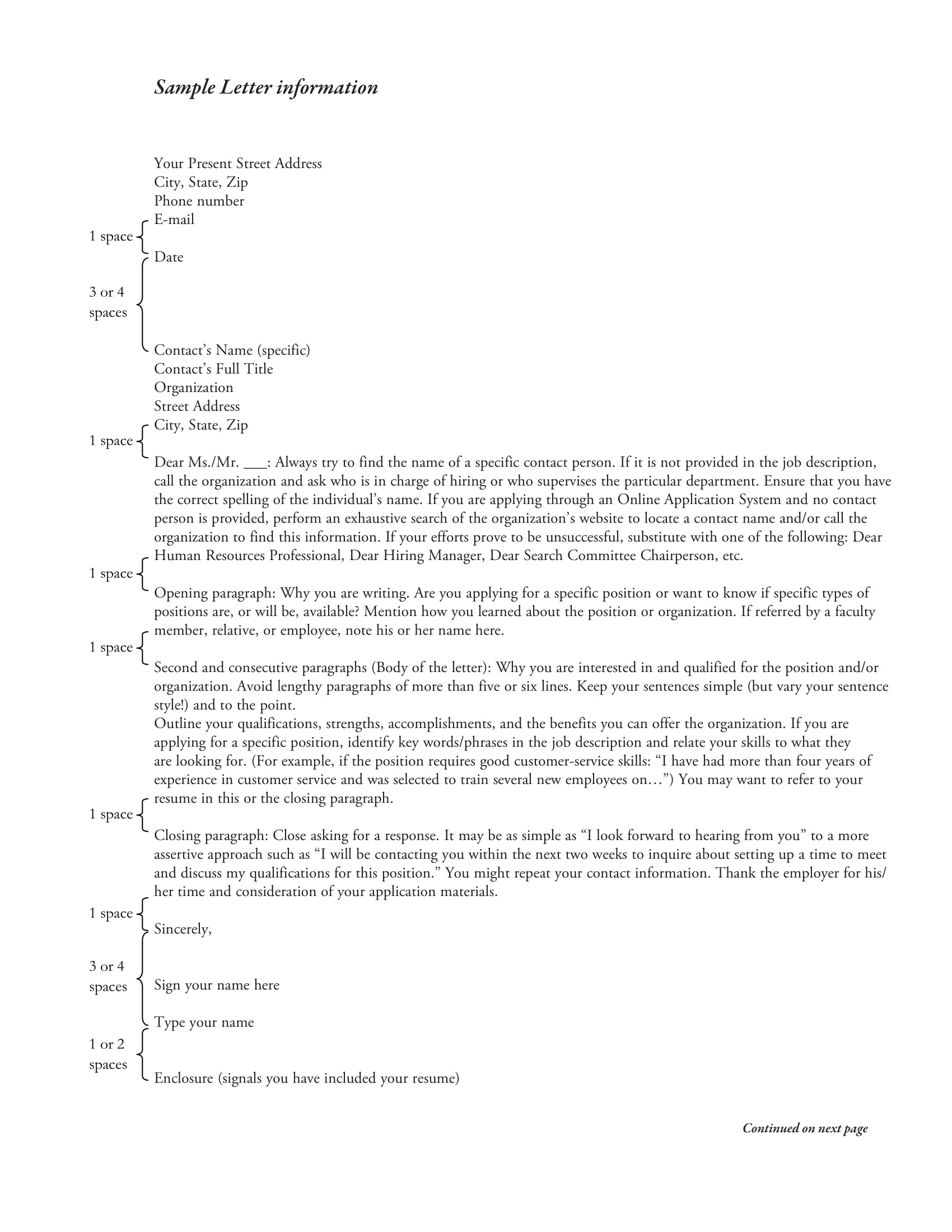
Comprehensive Cover Letter Example
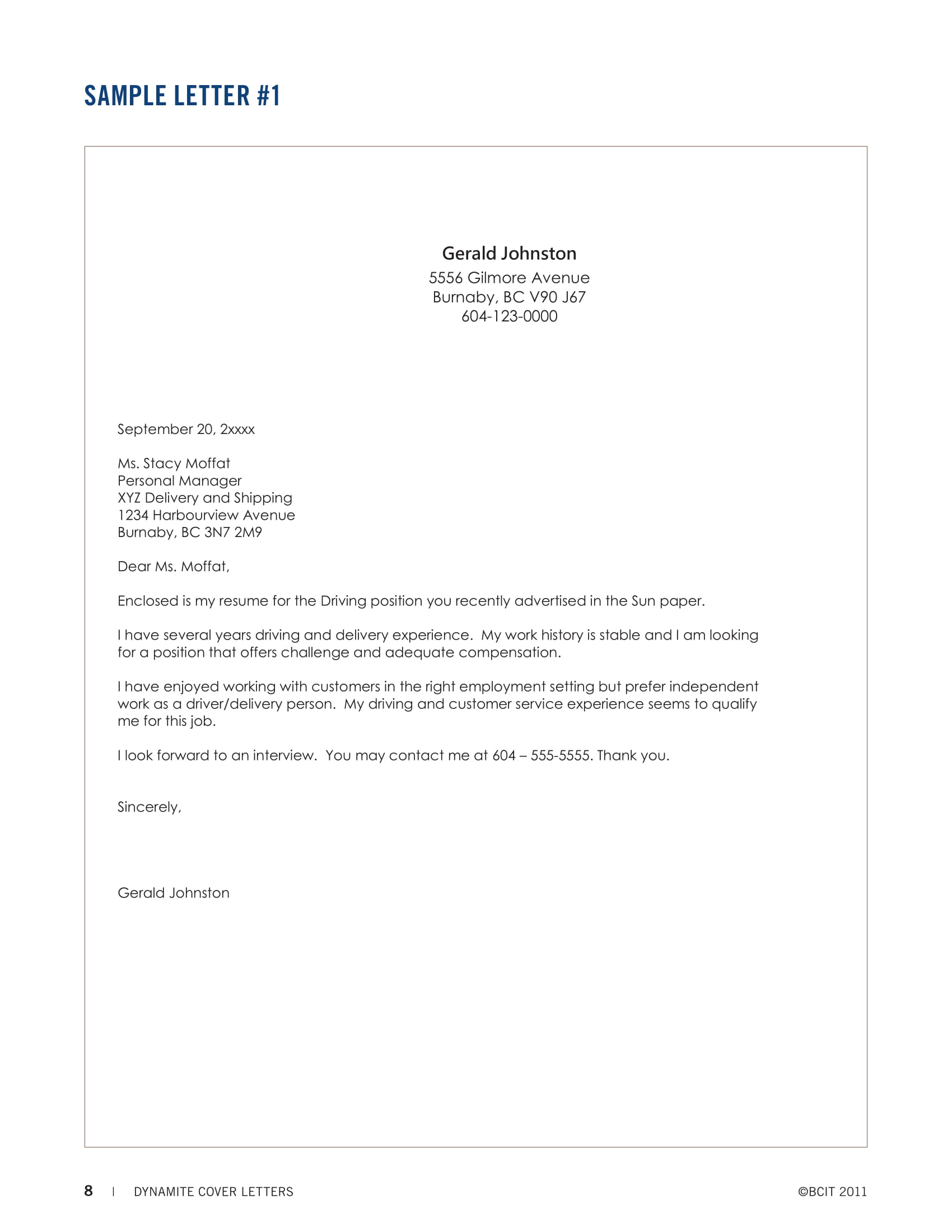
High School Cover Letter Example
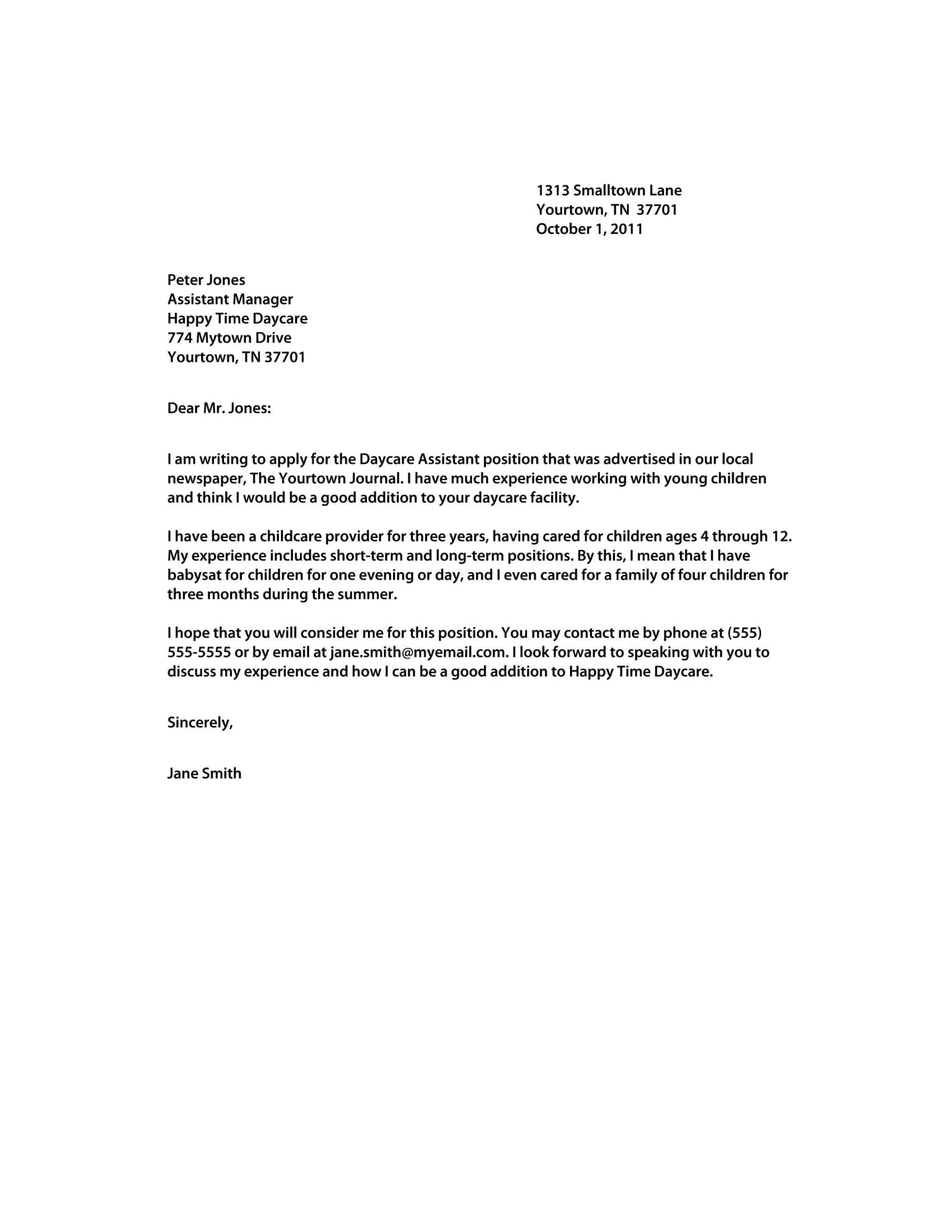
Cover Letter Example
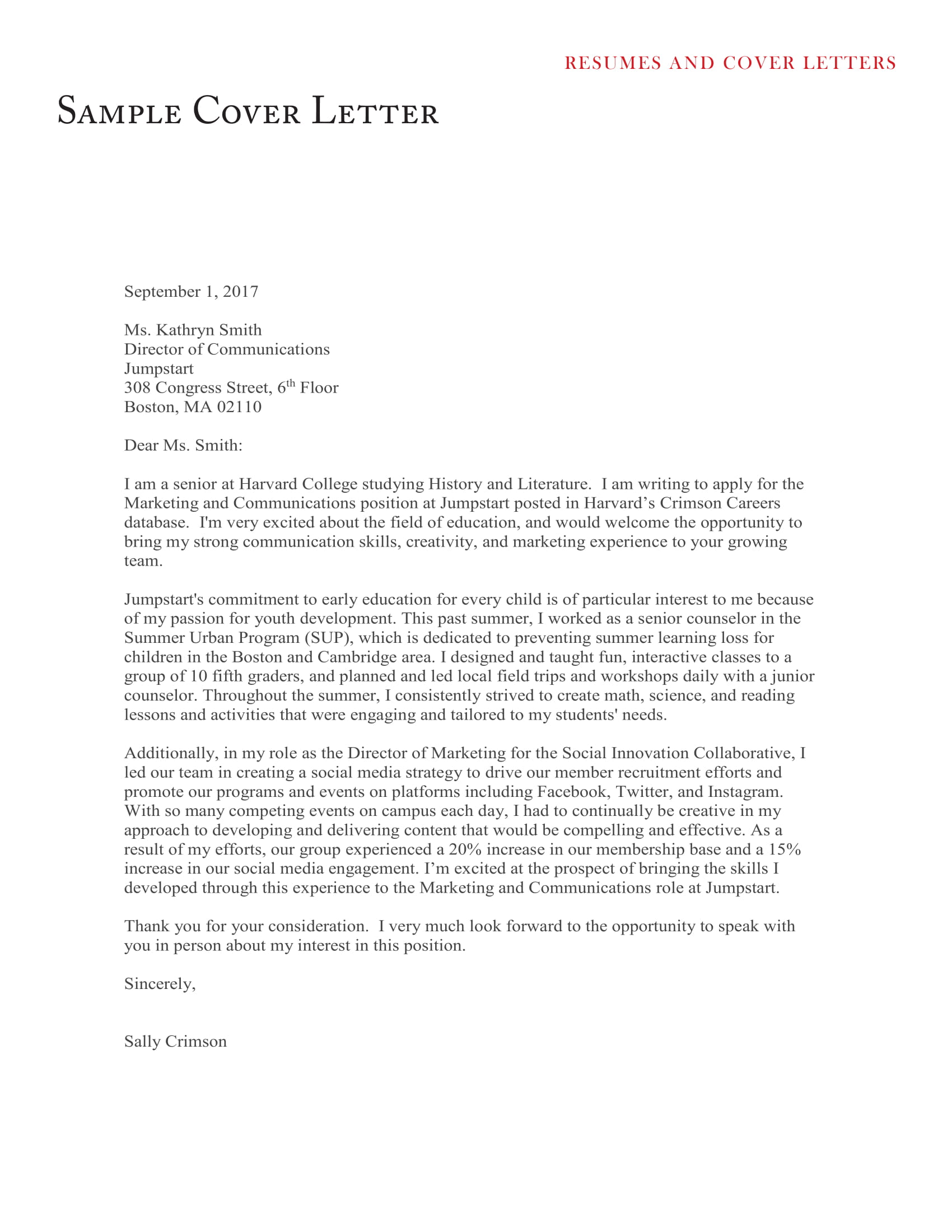
Job Application/Cover Letter Example
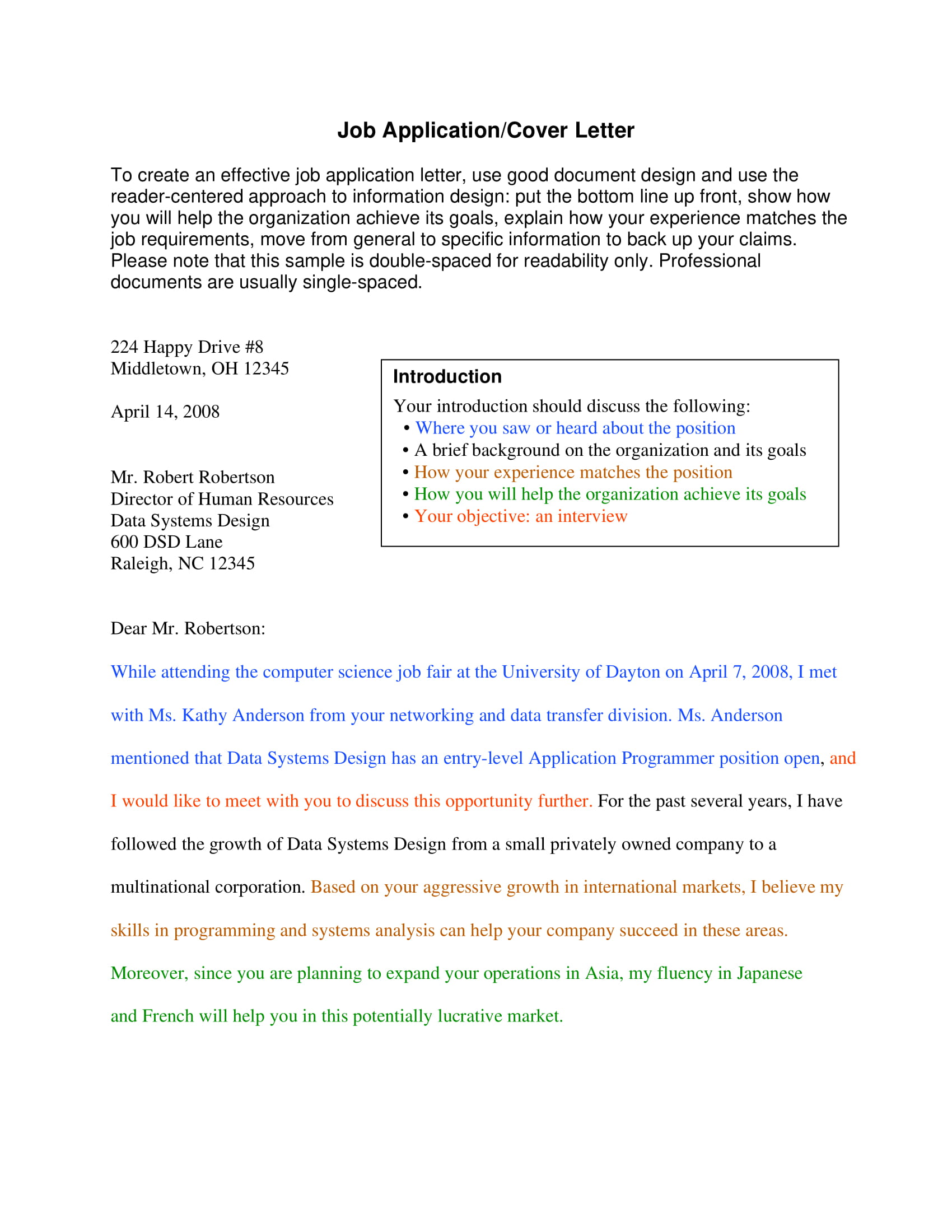
Cover Letter – Content Guide and Example
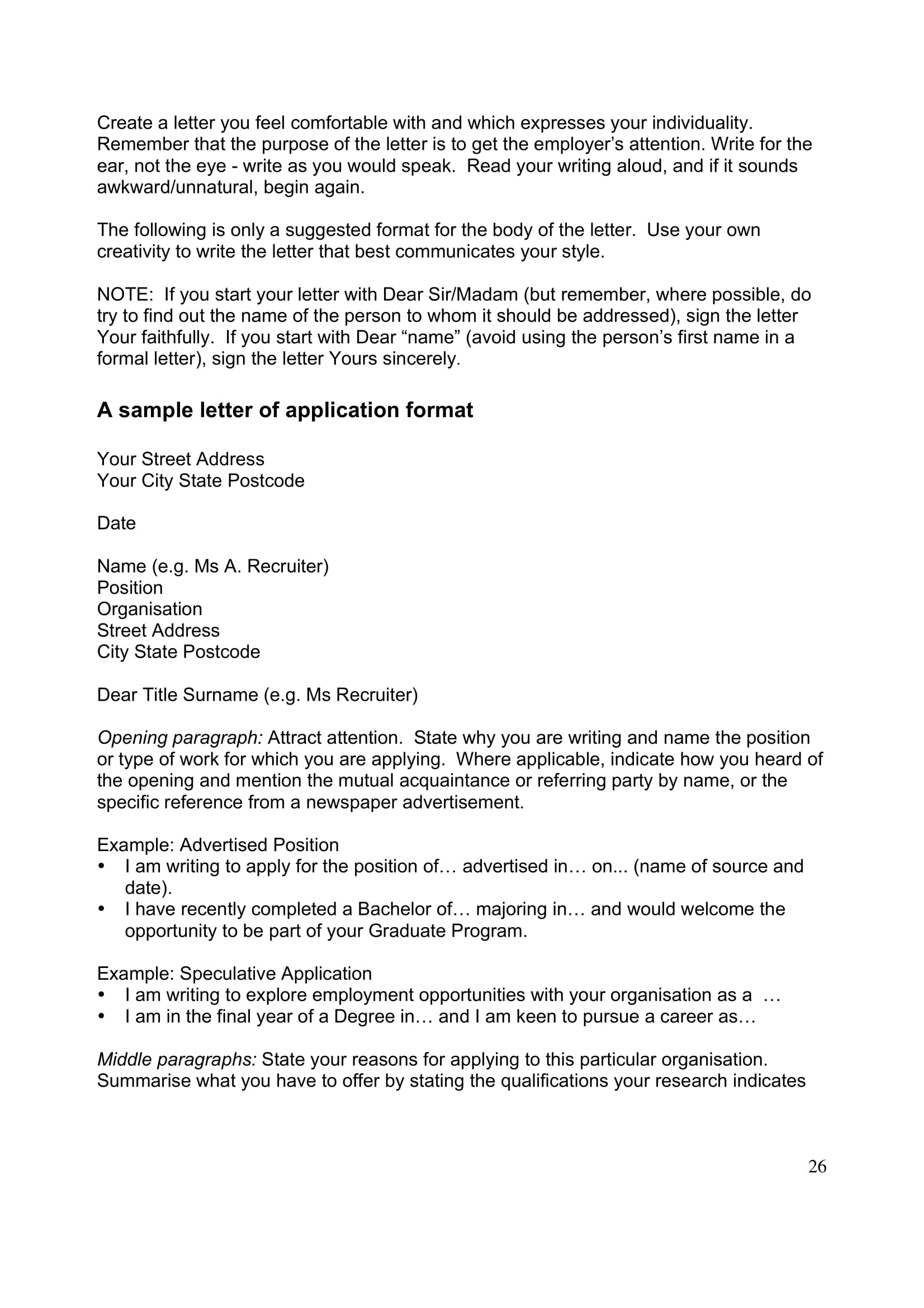
CV Cover Letter Example
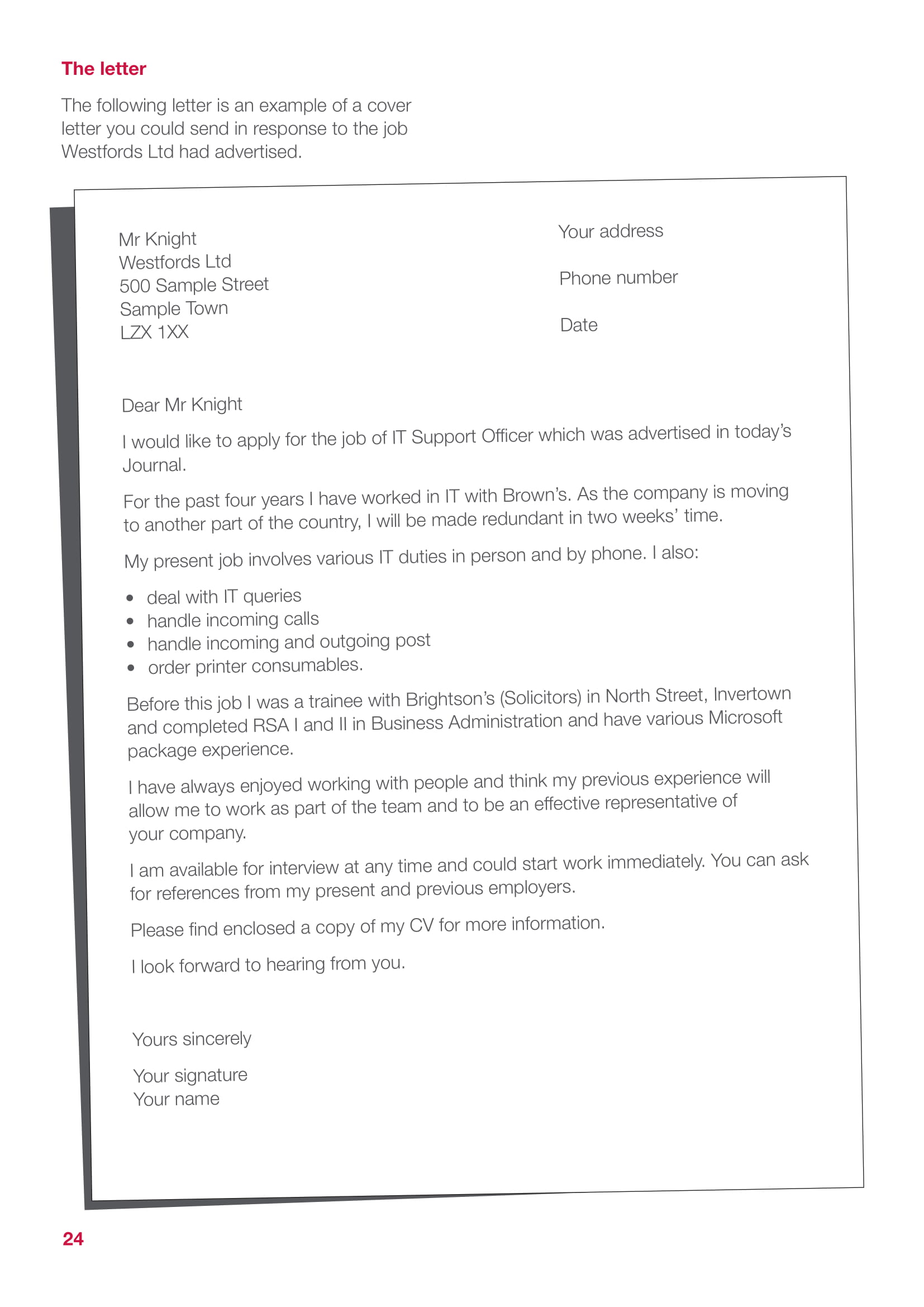
Basic Example – Cover Letter
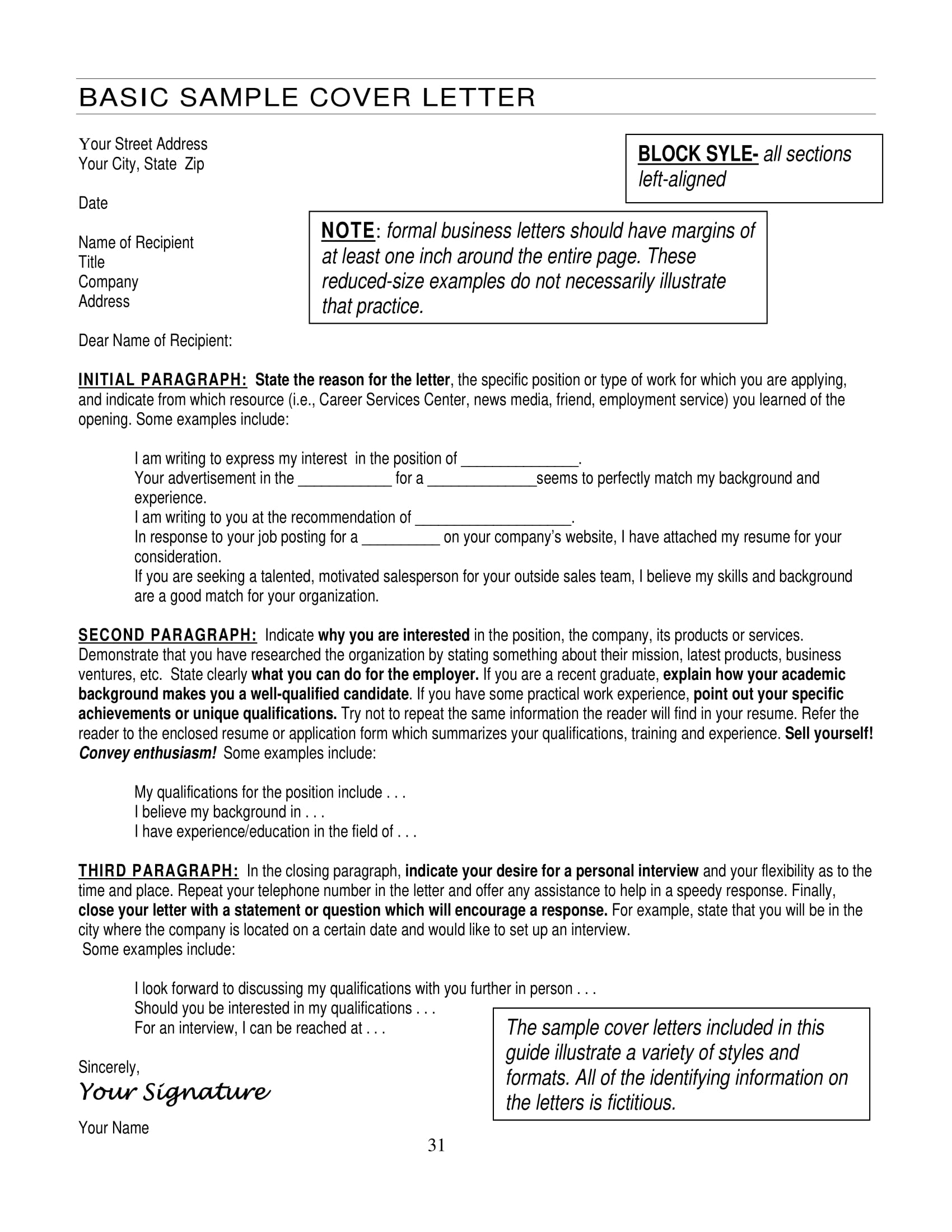
Cover Letter – Example with Tips
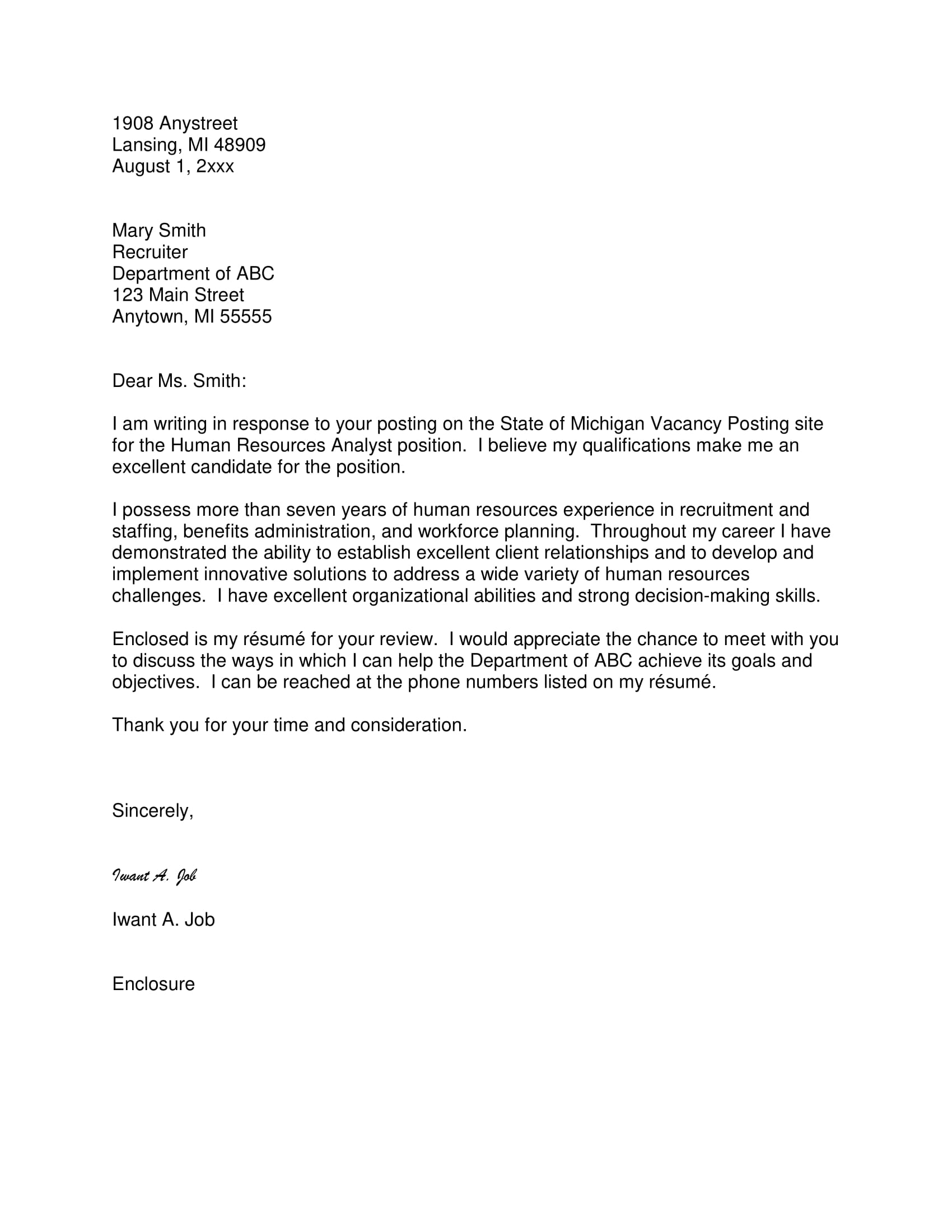
Example of a Cover Letter
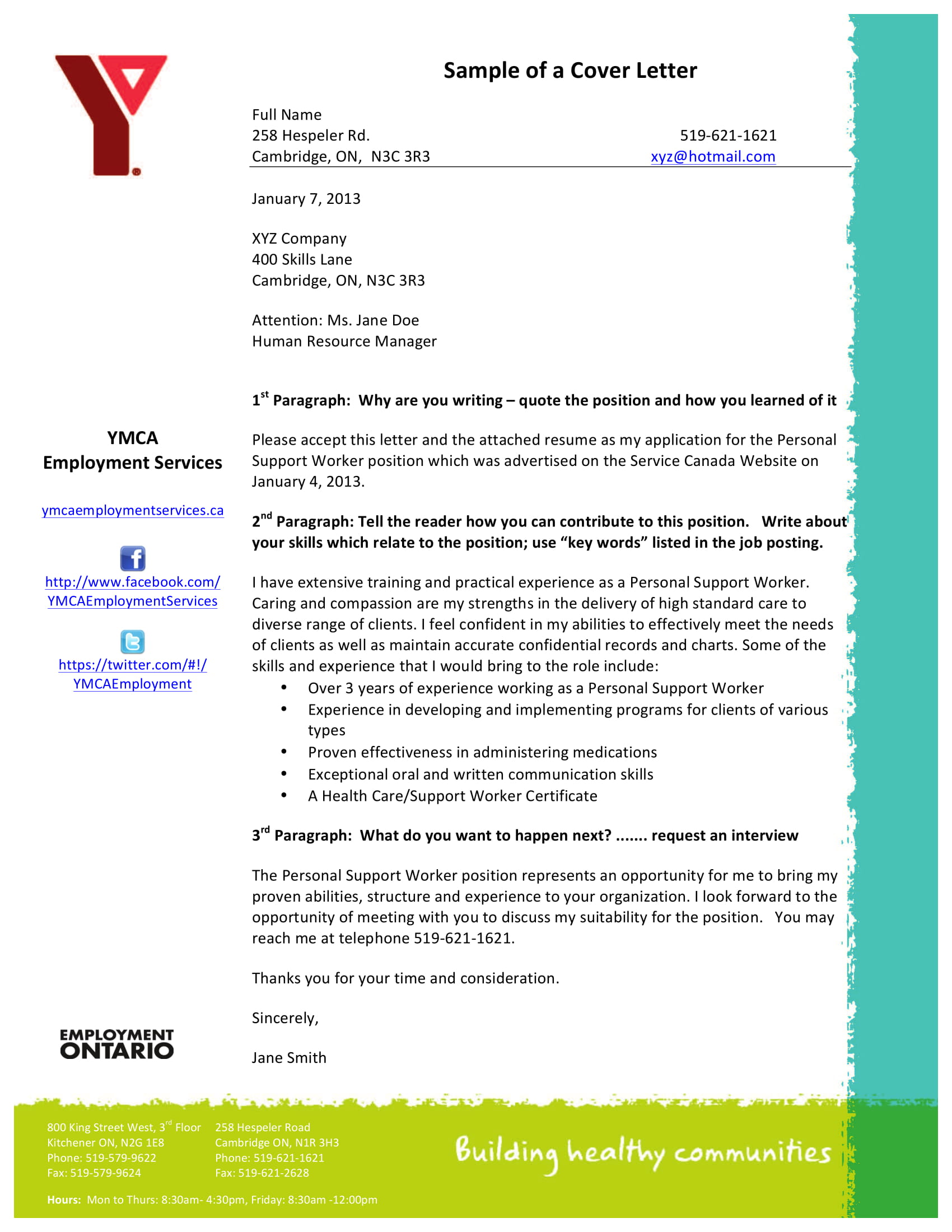
Cover Letter Example
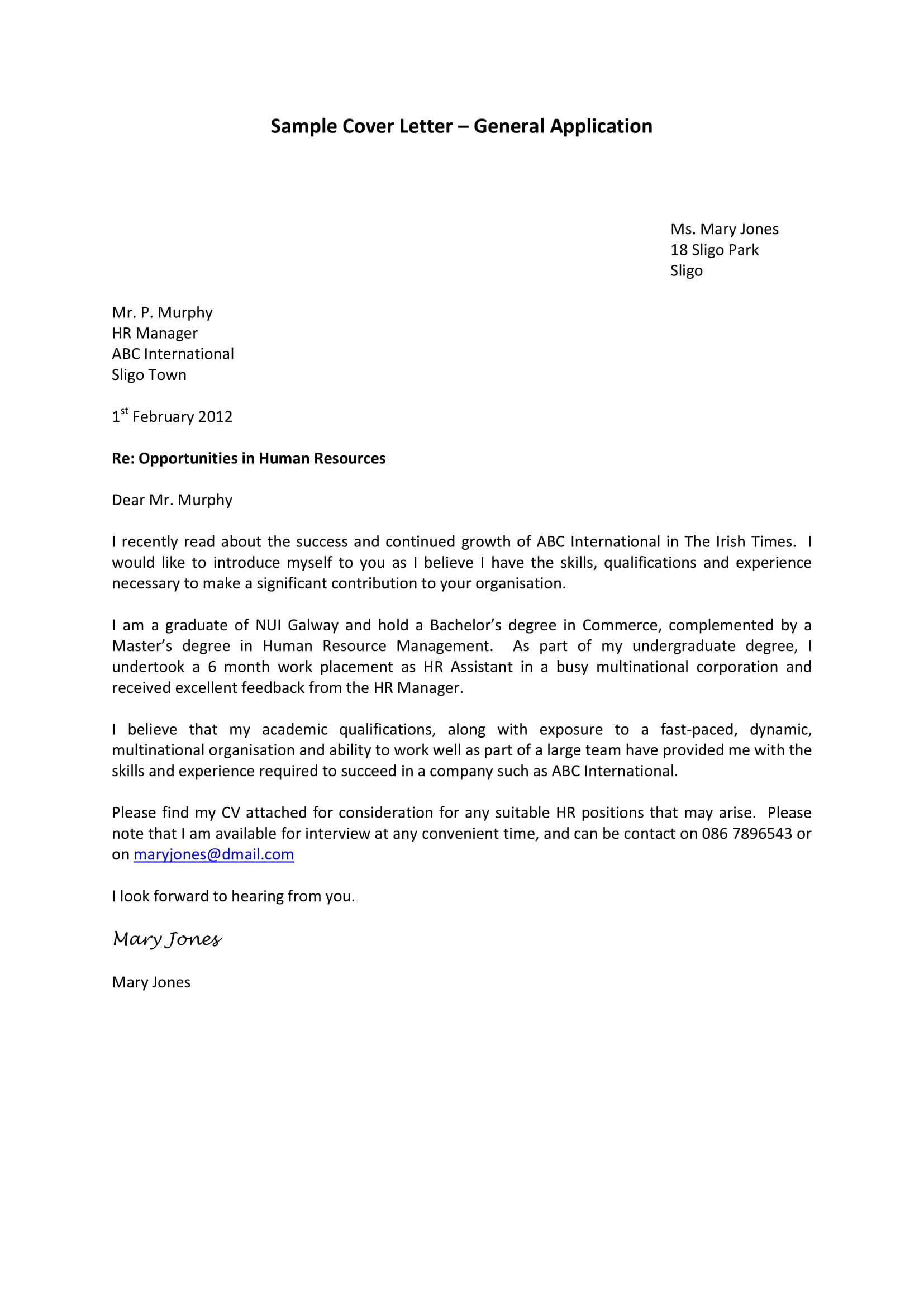
Detailed Cover Letter Example
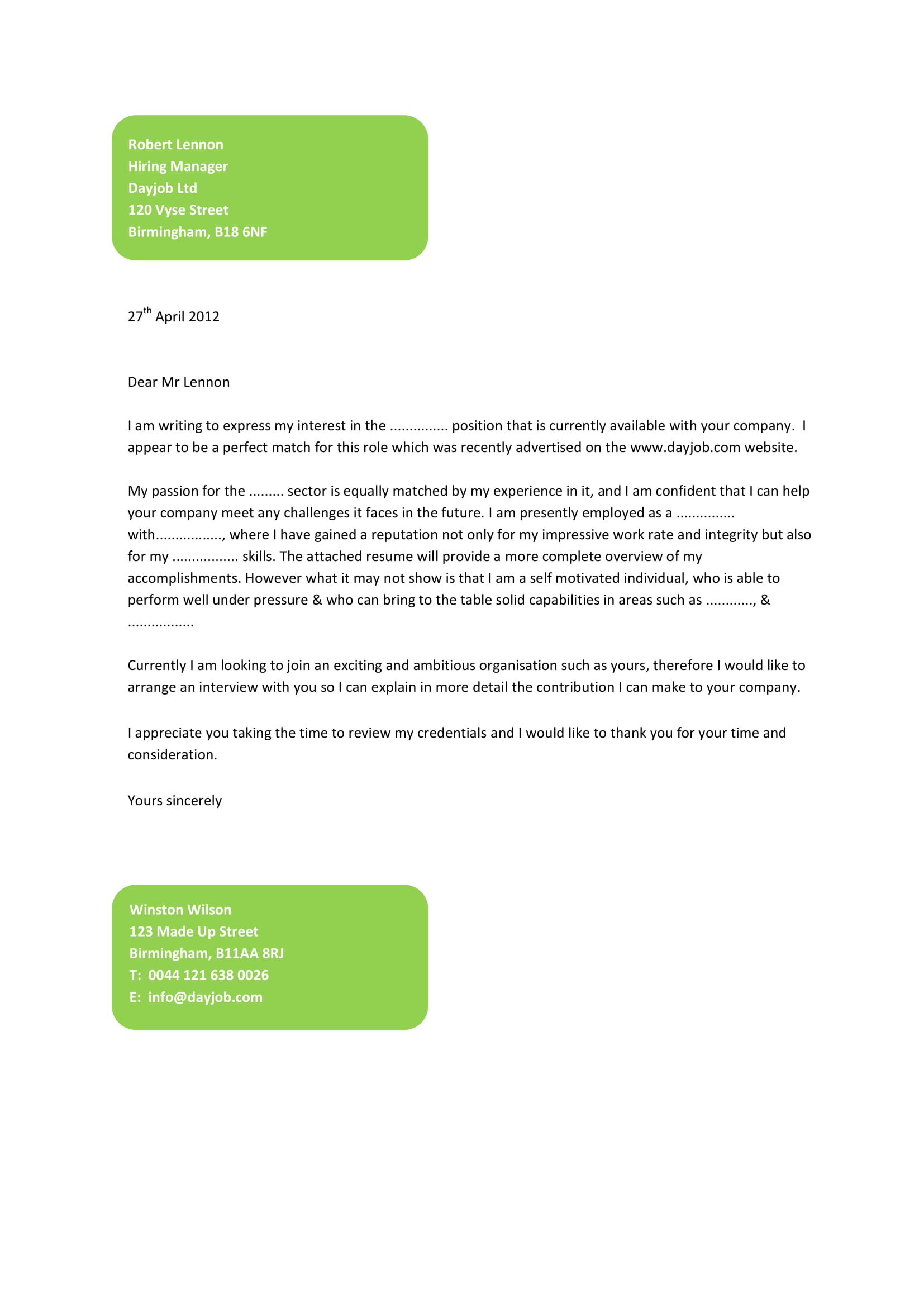
Final Online Cover Letter Example
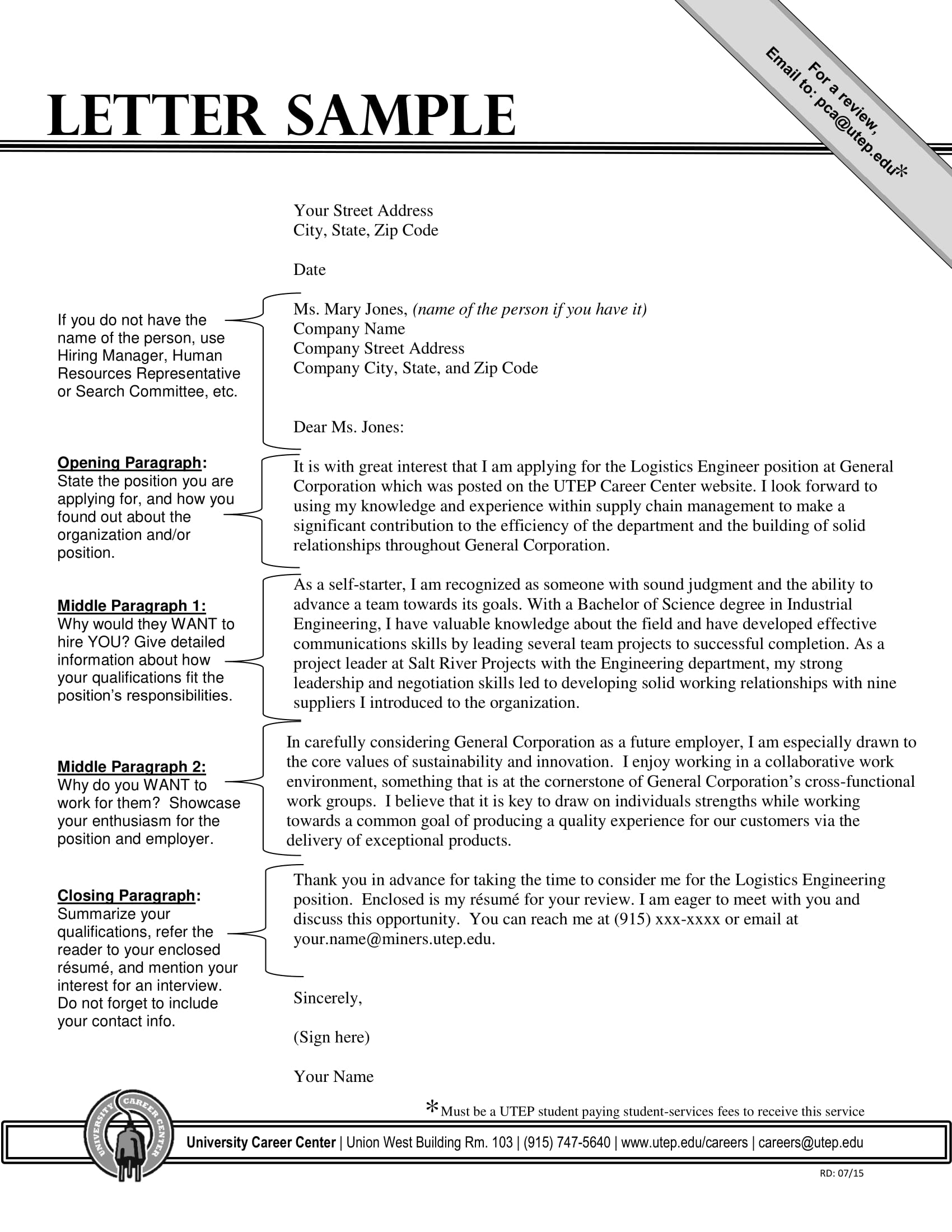
Cover Letter Example
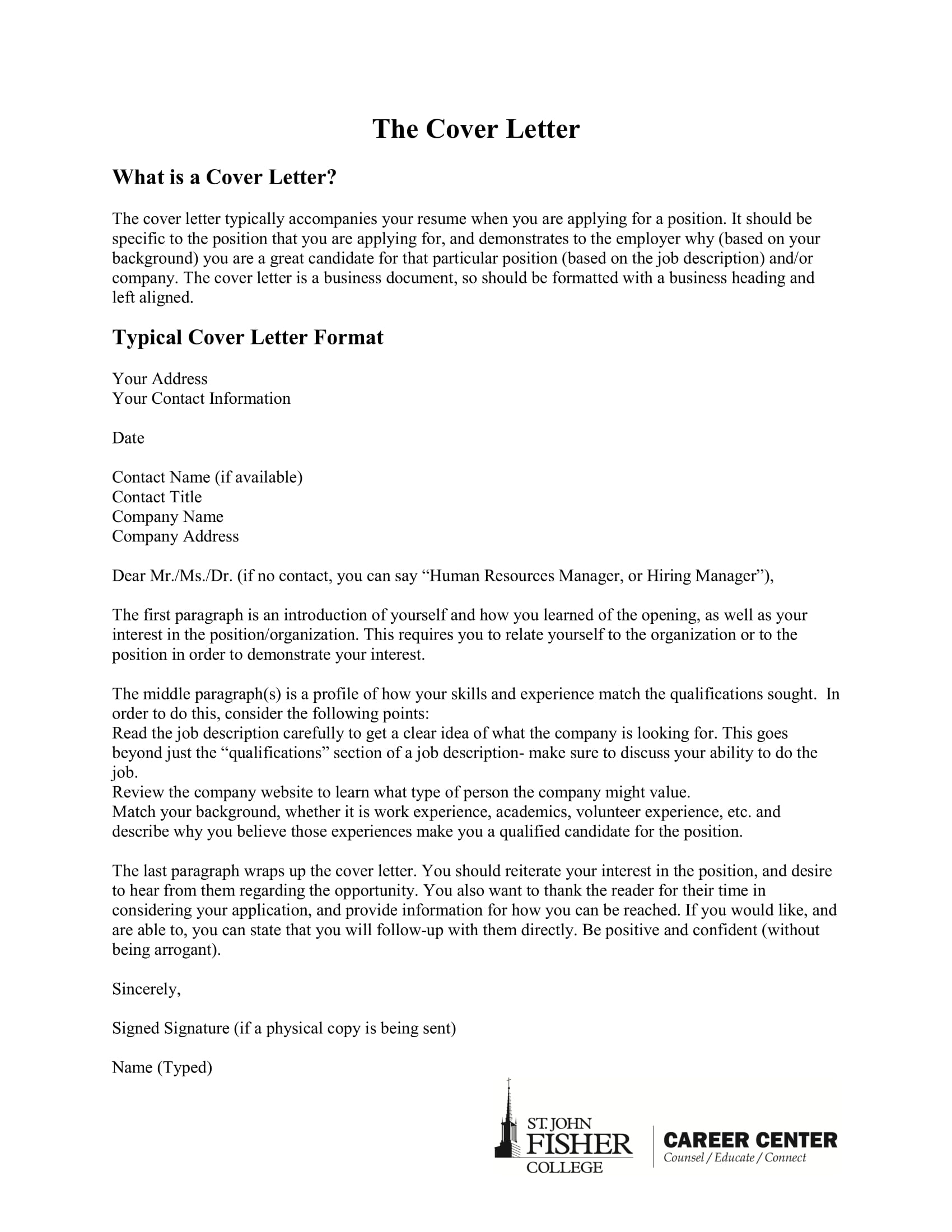
How to Write a Cover Letter
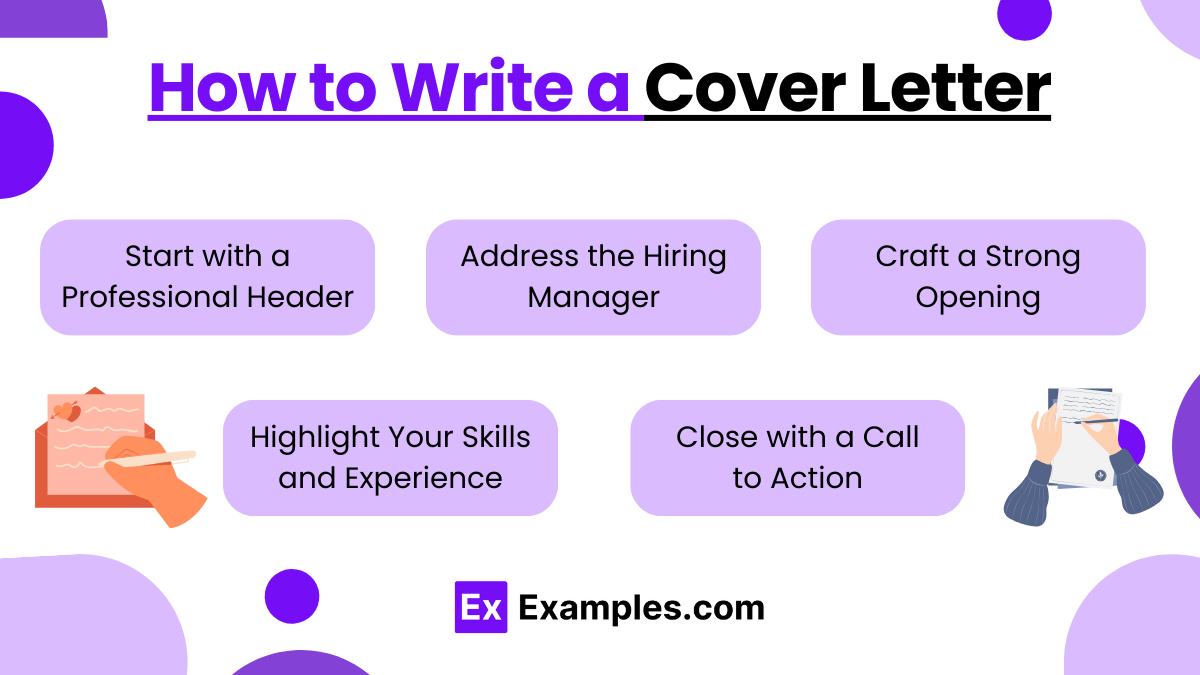
- Start with a Professional Header
Include your name, contact information, date, and the employer’s details at the top. - Address the Hiring Manager
Use their name if known, or a professional greeting like “Dear Hiring Team.” - Craft a Strong Opening
State the position you’re applying for and briefly explain your enthusiasm for the role and company. - Highlight Your Skills and Experience
Showcase relevant achievements and skills that align with the job requirements, using specific examples. - Close with a Call to Action
Express interest in an interview, provide your contact information, and thank the employer for their time.
Tips for an Effective Cover Letter
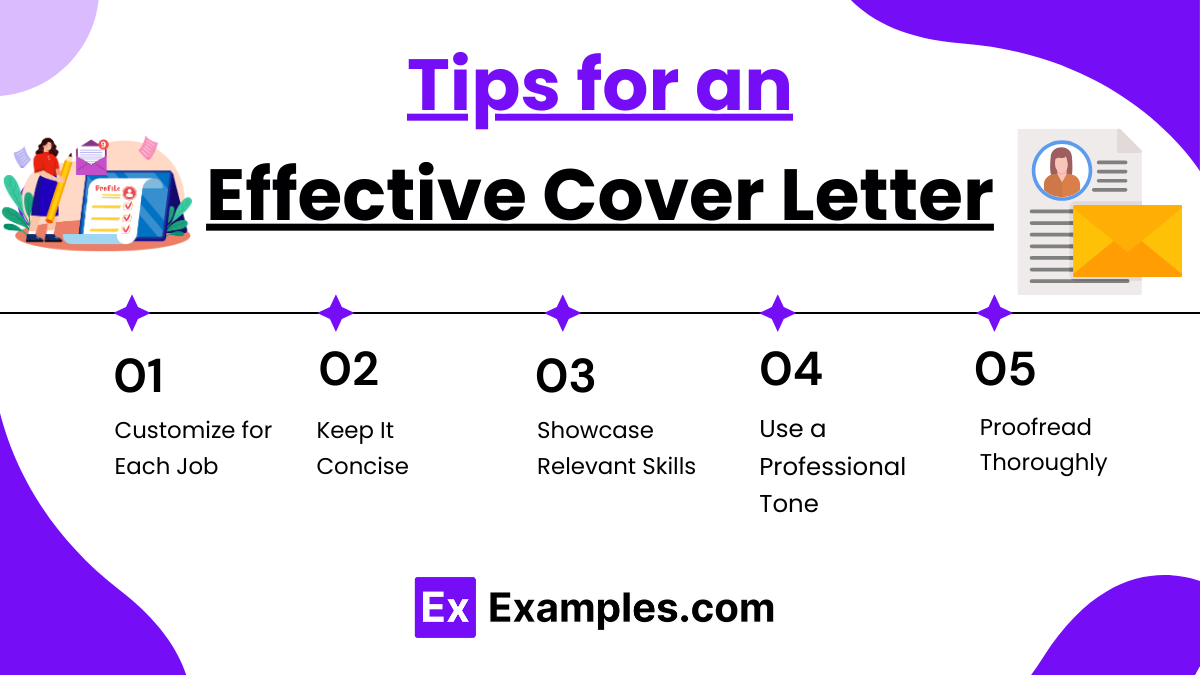
- Customize for Each Job
Tailor your cover letter to the specific job and company by addressing their needs and values. - Keep It Concise
Limit your cover letter to one page with clear, focused content. - Showcase Relevant Skills
Highlight key achievements and experiences that align with the job description. - Use a Professional Tone
Maintain a formal yet engaging tone throughout the letter. - Proofread Thoroughly
Check for spelling, grammar, and formatting errors to ensure a polished and professional presentation.
FAQs
Is a job letter a cover letter?
Yes, a job letter and a cover letter refer to the same document. It is a formal introduction to your application, showcasing your qualifications and expressing interest in the role.
What are the 3 main things needed in a cover letter?
A strong cover letter requires a clear introduction mentioning the position applied for, a concise body highlighting relevant skills and achievements, and a professional closing that includes a call to action.
What makes a strong cover letter?
A strong cover letter is tailored to the job, effectively demonstrates your skills and achievements, and reflects genuine enthusiasm for the role and the company.
How long should a cover letter be?
A cover letter should be no longer than one page. It must be concise, focusing on the key qualifications and experiences that align with the job requirements.
Can I use the same cover letter for multiple jobs?
No, it is important to customize each cover letter for the specific job and company to demonstrate genuine interest and highlight your suitability for the role.


